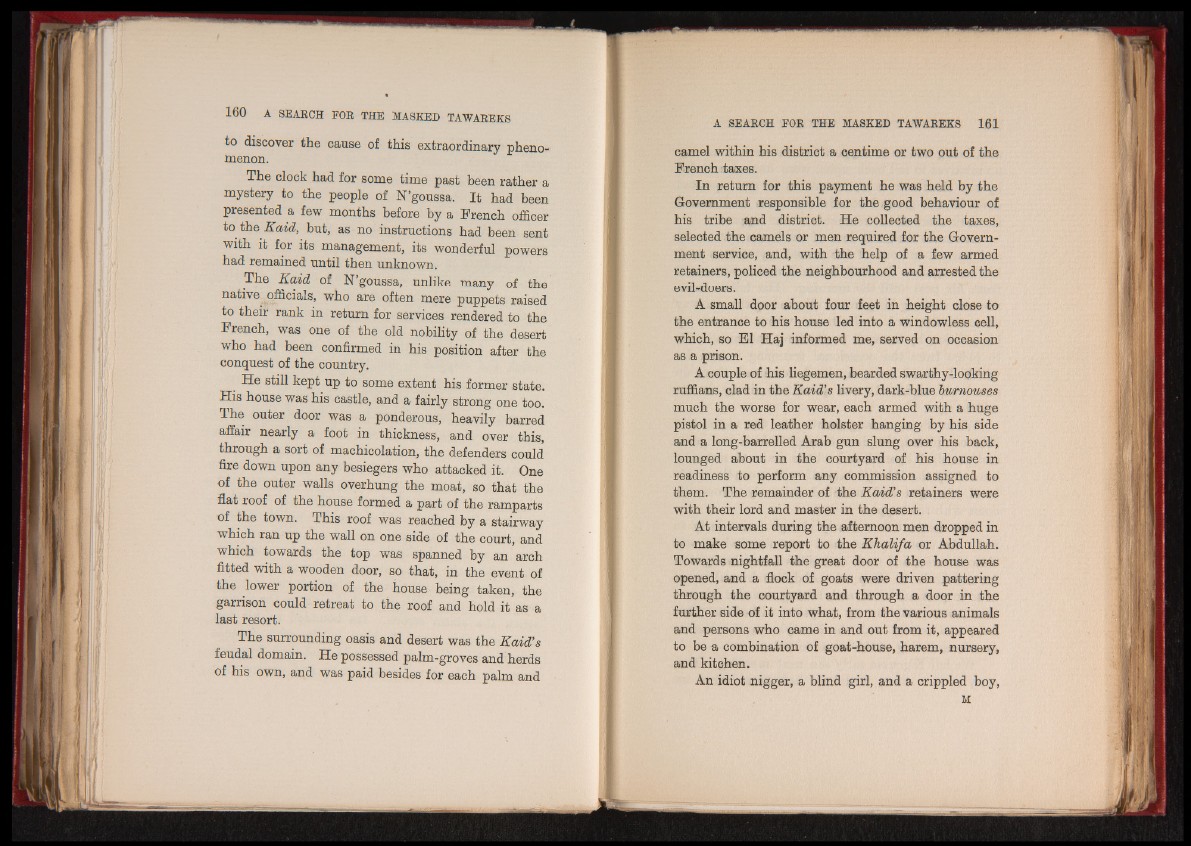
to discover the cause of this extraordinary phenomenon.
The clock had for some time past been rather a
mystery to the people of N’goussa. It had been
presented a few months before by a French officer
to the Kaid, but, as no instructions had been sent
with it for its management, its wonderful powers
had remained until then unknown.
The Kaid of N’goussa, unlike many of the
native officials, who are often mere puppets raised
to their rank in return for services rendered to the
French, was one of the old nobility of the desert
who had been confirmed in his position after the
conquest of the country.
He still kept up to some extent his former state.
His house was his castle, and a fairly strong one too.
The outer door was a ponderous, heavily barred
affair nearly a foot in thickness, and over this,
through a sort of machicolation, the defenders could
fire down upon any besiegers who attacked it. One
of the outer walls overhung the moat, so that the
flat roof of the house formed a part of the ramparts
of the town. This roof was reached by a stairway
which ran up the wall on one side of the court, and
which towards the top was spanned by an arch
fitted with a wooden door, so that, in the event of
the lower portion of the house being taken, the
garrison could retreat to the roof and hold it as a
last resort.
The surrounding oasis and desert was the Kaid’s
feudal domain. He possessed palm-groves and herds
of his own, and was paid besides for each palm and
camel within his district a centime or two out of the
French taxes.
In return for this payment he was held by the
Government responsible for the good behaviour of
his tribe and district. He collected the taxes,
selected the camels or men required for the Government
service, and, with the help of a few armed
retainers, policed the neighbourhood and arrested the
evil-doers.
A small door about four feet in height close to
the entrance to his house led into a windowless cell,
which, so El Haj informed me, served on occasion
as a prison.
A couple of his liegemen, bearded swarthy-looking
ruffians, clad in the Raid's livery, dark-blue burnouses
much the worse for wear, each armed with a huge
pistol in a red leather holster hanging by his side
and a long-barrelled Arab gun slung over his back,
lounged about in the courtyard of his house in
readiness to perform any commission assigned to
them. The remainder of the Kaid’s retainers were
with their lord and master in the desert.
At intervals during the afternoon men dropped in
to make some report to the Khalifa or Abdullah.
Towards nightfall the great door of the house was
opened, and a flock of goats were driven pattering
through the courtyard and through a door in the
further side of it into what, from the various animals
and persons who came in and out from it, appeared
to be a combination of goat-house, harem, nursery,
and kitchen.
An idiot nigger, a blind girl, and a crippled boy,